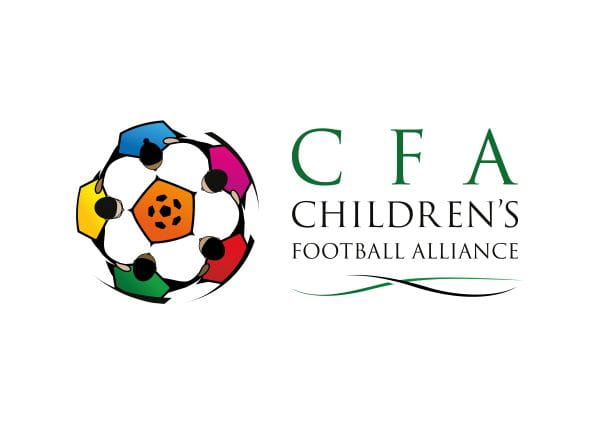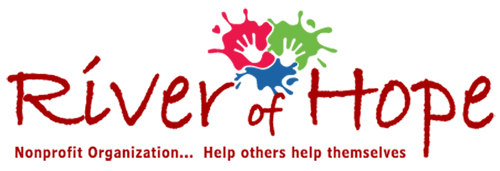Update 31/01/16
In December 2012, we purchased in Selo, Kasangulu, Bas Congo, in the outskirts of Kinshasa, 4ha land. In Spring 2013 we could straight away start the construction of the center” Talal Mosika ” thanks to all the sponsors and foundations. It is hard to believe that in fall 2015, just after 2 ½ years we inaugurated our 7th building & 2 converted containers. Of course we still have a lot planned but now the infrastructure is such that the program can start holistically. With the aim of stimulating the local economy with a micro-economic approach in order to achieve sustainability are already the first success stories. It clearly requires a lot of patience and time, training, and discussions with the local people. There needs to be a rethink, so that they can free themselves from the cycle of poverty with our assistance. In this annual report we present all the activities of this past year. Let’s start with the highlights.
Please download the report from here.
Update 26/04/2015
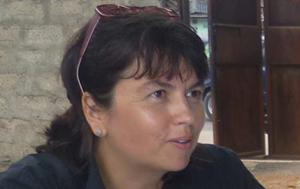 Claudia Doron would like to thank all for following River of Hope News, and supporting their projects in Congo.
Claudia Doron would like to thank all for following River of Hope News, and supporting their projects in Congo.
Claudia says, ‘We are very happy to send you our yearly report 2014’.
You find it in 3 languages on the front page of our homepage
www.ariverofhope.org
Interview: Claudia Doron (CD)
Please can you introduce River of Hope to the NCFA? What is the aim of the organisation?
CD. River of Hope is a non-profit organization that I founded in February 2010 in Buchs/Switzerland together with my husband Jake. This was the realization of a 20-year old dream inspired by the work of my father in law, Dr. Nathaniel Doron, a former UN Official and Diplomat. I picked up the thread following in his footsteps and named the organization “River of Hope” after the title of his biography.
Our purpose is to assist needy and willing communities and other target groups to help themselves and others, and improve their standard of living for future generations.
Why was River of Hope formed and why did you create a football school in DR Congo?
CD. As a former Swissair flight Attendant, I had the chance to visit the airline’s project in Nairobi, a school for poor children. I was so impressed by their dedication and achievements, that I told myself that one day I will open a school for children somewhere in the world. The question is, how you go about it, poverty is all over the world. My husband Jake and I took the unconventional route and decided to create River of Hope with out a cent, with the belief that the right project will find us. To our surprise, this happened 6 weeks later when Véronique and her husband Roberto came to me and ask for help. She is Congolese married to a Swiss, and living in Switzerland since the late 90’s. Her brother Jean-Marie Nshombo, a trained football coach, had a well-matured project idea for a football school for street children. His dream was lying in a drawer for over 10 years waiting for someone to help. Sadly he could not afford to get this going, and we immediately felt it was the right thing for us. Working together with a Congolese/Swiss who knows both cultures and languages was definitely an advantage to get things moving forward swiftly. Six weeks later I flew to Kinshasa, my luggage jam-packed with 46 kg of football material. There I met an amazing team, now dear friends to my family and me. I made it clear that we were starting with no financial backup, but with a great idea, and a huge dosage of willpower. If we all worked really hard our project would soon take off.
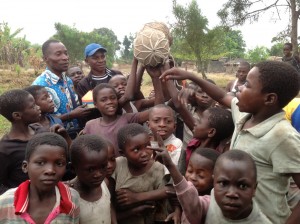 Officialising things was the highest priority and so we became the first registered football school for vulnerable children in DRC. In 2013 we started building the Centre “Tala Mosika” (look beyond in Lingala), outside Kinshasa.
Officialising things was the highest priority and so we became the first registered football school for vulnerable children in DRC. In 2013 we started building the Centre “Tala Mosika” (look beyond in Lingala), outside Kinshasa.
How would you describe the River of Hope team and how long have you been working there, what do you enjoy about your work and what do you not enjoy about your work?
CD. As you already know, I am the founder and also the Head of Projects. We have the best team ever, who have put in countless voluntary hours in this project. What I love is that on more than one occasion we proved that the unconventional is possible. We started without a cent in a very poor and corrupt country, and we met the most wonderful people and made so many good experiences. I am so proud to be able to tell the world that good things can happen in Congo. Of course communication is not always easy, and although both my husband and I are fluent in French, there is still that element of cultural difference and misunderstanding. But at the end we always manage, and with time we have learned to truly understand each other. This is Veronique’s forte: she speaks Lingala to the village people, many of whom are illiterate, but still need to be clear on what we are trying to accomplish. It is important to make them understand that they have a choice in life. This is what I love about my job: we started very small yet we managed to touch and change so many lives because the people receiving our support became active players in the process.
How much emphasis does River of Hope place on childhood in your programmes, how do you engage the locals?
CD. We focus on children and young adults. In order to develop a sustainable program 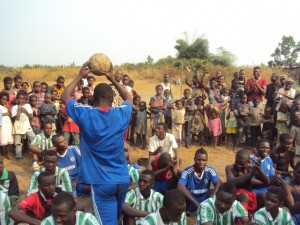 in a remote location we need to ensure a strong base. The population of the neighbouring village Selo, with its 800 inhabitants, is fully integrated in the construction and maintenance of the campus and its surrounding agricultural land. In addition we offer them an educational program for the illiterate, and professional courses such as for tailoring and farming. Further programs are under development.
in a remote location we need to ensure a strong base. The population of the neighbouring village Selo, with its 800 inhabitants, is fully integrated in the construction and maintenance of the campus and its surrounding agricultural land. In addition we offer them an educational program for the illiterate, and professional courses such as for tailoring and farming. Further programs are under development.
How important are links between River of Hope and organisations like the International Children’s Football Alliance?
CD. For a small organisation it is vital to have a diverse regional and international network of partners, stakeholders and individuals who support our Centre. We share a common goal to fight against poverty, malnutrition, injustice, etc… We exchange ideas and learn from each other.
As supporters of (National Children’s Football Alliance) Football & Peace Project do you feel that there should be more opportunities for children and young people to participate in cross cultural football for fun projects, if so, why do you think it is important?
CD. Children are the future! My family is multicultural, and our children grow up with 3 languages, tolerance and respect towards others is a given. We have to give all children the possibility to discover other cultures and religions. As an Intercultural Coach and Relocation Consultant I work with people from all over the world and nothing is more important than tolerance, and that comes from nothing else but mutual cultural understanding. Cross-cultural learning through football is a fantastic tool also for grown-ups!
Is there a project that you would like to tell our readers about and how they might like to support the good work being done?
CD. In the beginning of 2013 we purchased 4 acres of land about 40 km outside
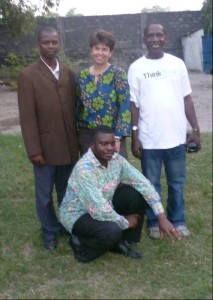
Kinshasa to establish the Centre “Tala Mosika”. Construction began in July and we plan to officially open the school in summer 2014. With the right support and understanding of what opportunities lie ahead, fewer parents will deny children their right to an education, and force them onto the streets. Through the attraction of football, we help the street kids to get a chance. Parents and communities are involved in the building of the centre, the educational process and development programs. Children will receive the necessary support to integrate the local educational system, thus becoming independent and confident individuals, ready to face the challenges of their personal and professional lives. We aim to free them and their families from the cycle of poverty and misery by stimulating the local economy so they can help themselves.
We are looking for partners in the fields of construction, education, and football as well as funding that will help build a sustainable infrastructure, and offer those needy children education and school material, clothing, food, and medical care.
If you are interested in supporting any aspect of this wonderful organisation please contact:
Download River of Hope 2013 Annual Report here.
